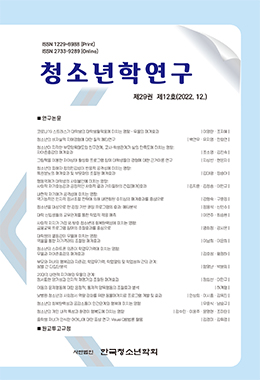본 연구는 20대의 내현적 자기애와 우울 간의 관계에서 정서표현 양가성과 인지적 재평가의 조절된 매개효과를 알아보기 위해서 이루어졌다. 인지적 재평가를 긍적적 재평가와 객관화 재평가로 나누어 각각 조절된 매개 효과를 검증하였다. 전국 20대 성인 250명을 대상으로 온라인 자기 보고식 설문조사를 실시하였다. 본 연구 결과는 다음과 같다. 첫째, 내현적 자기애와 정서표현 양가성, 우울은 모두 유의한 정적 상관을 나타내었다. 두 종류의 인지적 재평가 중 긍정적 재평가는 내현적 자기애와 우울과 유의한 부적 상관을 나타내었고, 객관화 재평가는 정서표현 양가성과 유의한 정적 상관을 나타내었으며, 긍정적 재평가와 객관화 재평가는 유의한 정적 상관을 나타내었다. 둘째, 내현적 자기애와 우울 간의 관계에서 정서표현 양가성의 매개효과가 인지적 재평가의 수준에 따라 달라지는 조절된 매개효과는 객관화 재평가를 사용할 때는 나타났지만, 긍정적 재평가의 경우는 나타나지 않았다. 본 연구 결과는 20대의 우울증을 치료하기 위해 고려해야 할 심리적 변인을 제공한다는 점에서 임상적인 의의가 있다. 마지막으로 본 연구의 제한점과 후속 연구방향에 대해서 논의하였다.
We aimed to identify the moderated mediation effect of Ambivalence over Emotional Expressiveness and Cognitive Reappraisal in the relationship between Covert Narcissism and Depression in twenties. Cognitive Reappraisal was divided into Positive and Detached Reappraisal. An online self-report survey was conducted on 250 in their 20s nationwide. The major results are as follows. First, the positive correlations between Depression, Covert Narcissism, and Ambivalence over Emotional Expressiveness were significant; Positive Reappraisal was negatively related to Covert Narcissism, and Depression; Detached Reappraisal was positively related to Ambivalence over Emotional Expressiveness; and the correlation between Positive Reappraisal and Detached Reappraisal was positive. Second, only Detached Reappraisal had the moderated mediating effect where Covert Narcissism affects Depression through Ambivalence over Emotional Expressiveness. This study suggests psychological variables to be considered in order to treat it. The limit and further suggestions were discussed.




